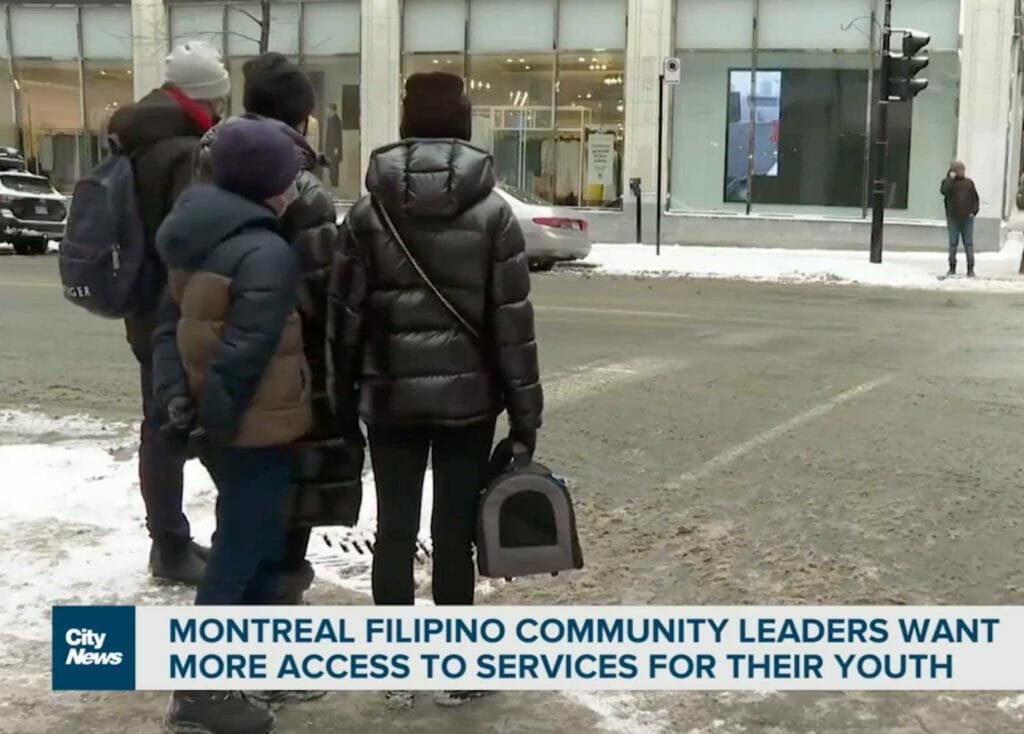English-speaking Filipino youths are ‘left behind’ in French-speaking Quebec

Lack of support is leading to social and economic isolation, especially for those living in the Côte-des-Neiges area of Montreal, they warned. SCREENSHOT
Filipino community leaders in Montreal called attention to the government’s “overall lack of support” for Quebec’s English-speaking Filipino youths.
They are asking for help because they fear that young Filipinos in the French-speaking part of Canada are not getting access to job opportunities, training, French-language education, and are being excluded from certain public institutions.
Lack of support is leading to social and economic isolation, especially for those living in the Côte-des-Neiges area of Montreal, they warned.
“Filipino youths face challenges in terms of integration and safety,” Ramon Vicente, president of Filipino Family Services, told City News. “There’s not enough programs to help their needs in employment, language, training, education and leisure and crime prevention.
“Quebec and the City of Montreal have millions into youth crime prevention programs, the City of Montreal is planning a summit of unarmed violence. But we are not sure that we and other English-speaking communities will be a part of it and have equal access to that new funding,” Viccnte added.
There are some 44,000 Filipinos in Montreal, according to recent census data. Many are new immigrants and first-generation Canadians. Sixty per cent are women, with many working in health care or as live-in caregivers. Thirty-five per cent (roughly 15,000) are under 24 years old, For many new to Quebec, social and economic services are not as easily accessible compared to those born and raised in the province.

Stephanie Valenzuela, city councillor for district for the Darlington district in CDN, has asked Mayor Valerie Plante for support for Filipino youths. SCREENSHOT
Stephanie Valenzuela, city councillor for district for the Darlington district in CDN, told City News that she has written to Mayor Valerie Plante about the lack of effective integration into society for English-speaking immigrants.
“It’s an issue that’s just been swept under the rug,” said Valenzuela, “for a community that’s been here for over 60 years.”
A bill tabled last year is set to overhaul Quebec’s French-language charter, but English-speakers in the province fear this will come at the expense of their minority rights.
Thelma Castro, an advisor with the Filipino Parents Association in Quebec, says that could lead to more school dropouts, crime, and more isolation from social services.
“Language is a big thing because they feel demoralized and hopeless,” Castro told City News. “Then these petty crimes happen, then drugs and drinking and addiction, and it’s very sad.
“What happens to court services social services that these young people have to access when there are no services in English? We are an English-speaking community, much as we support the integration into French community, we need a lot of services available to be able to integrate properly and effectively,” Castro added.

